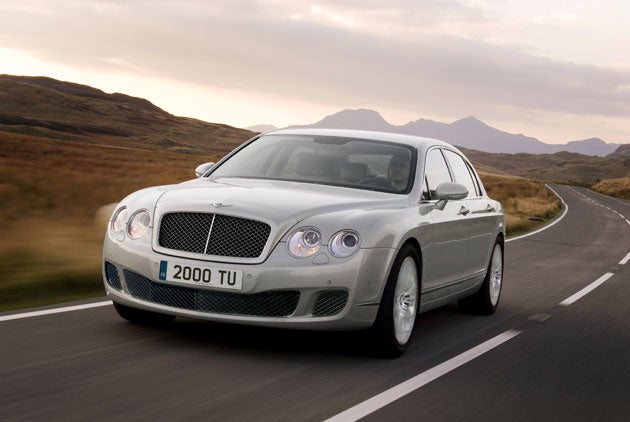UK car production and sales remain depressed

Your support helps us to tell the story
From reproductive rights to climate change to Big Tech, The Independent is on the ground when the story is developing. Whether it's investigating the financials of Elon Musk's pro-Trump PAC or producing our latest documentary, 'The A Word', which shines a light on the American women fighting for reproductive rights, we know how important it is to parse out the facts from the messaging.
At such a critical moment in US history, we need reporters on the ground. Your donation allows us to keep sending journalists to speak to both sides of the story.
The Independent is trusted by Americans across the entire political spectrum. And unlike many other quality news outlets, we choose not to lock Americans out of our reporting and analysis with paywalls. We believe quality journalism should be available to everyone, paid for by those who can afford it.
Your support makes all the difference.The latest data issued by the Society of Motor Manufacturers and Traders (SMMT) show just how hard the UK motor industry has been hit by the recession. Car production was down a whopping 50.2 per cent during the first half of the year at 411 thousand, while registrations of new cars were down 25.9 per cent at 925 thousand.
Two main points of interest emerge from the figures. The first is the extent to which manufacturers have aggressively reduced production in the face of market weakness in order to prevent stocks of finished cars building up – Honda, for example, closed its factory in Swindon for several months earlier this year, and many other UK manufacturers have implemented shorter shut-downs. While UK car sales and production are only loosely linked (the vast majority of cars sold here are built abroad, while most UK-built cars are exported), other markets are also depressed, hurting production here.
The second is the remarkable resilience so far of what remains of the UK motor industry in the face of these market difficulties. Despite the very heavy falls in production and sales, there hasn't been a single closure of a major car assembly plant in Britain during the present recession – thanks in part to the staying power of the Japanese manufacturers, who are traditionally reluctant to lay off staff.
Among the biggest losers in the UK market this year have been Chrysler (sales down 74.9 per cent) and its sister brands Dodge and Jeep, which have obviously been struggling since they split from Daimler, and the luxury car-maker Bentley (down 61.1 per cent). Harder to explain are the large drops in sales suffered by Renault (down 59.7 per cent) and Mitsubishi (down 55.9 per cent).
Ford's UK sales, by contrast, have held up quite well (they are down just 14.2 per cent) and the company's big-selling Fiesta and Focus have maintained their positions as the two best sellers in the British market. Ford's biggest headache isn't selling these cars in the UK but selling them here profitably; since it shut down its UK car assembly facilities, the company has to import these cars from the Eurozone and has taken an enormous hammering from the decline in sterling over the last couple of years.
Alfa Romeo, Hyundai and Kia all actually increased their UK sales during the first half of the year; Alfa was probably helped by the popularity of its new small car, the Mito, while the two Korean manufacturers have benefited from good new products such as the Kia cee'd and cars that are well-suited to the government's scrappage scheme - for example, the Hyundai i10.
Join our commenting forum
Join thought-provoking conversations, follow other Independent readers and see their replies
Comments